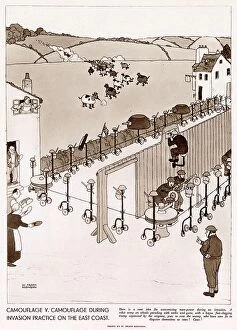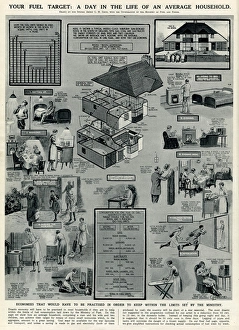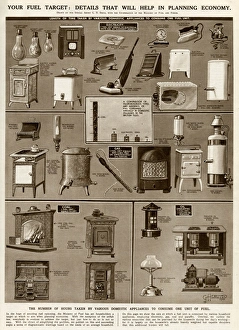Economising Collection
"Economising: Necessity Breeds Innovation" In times of crisis, the art becomes paramount
All Professionally Made to Order for Quick Shipping
"Economising: Necessity Breeds Innovation" In times of crisis, the art becomes paramount. From the intriguing concept of camouflage during invasion practice to the humble light switch in the 1940s, society has always found ways to make do with less. Just like the internal economy of Dotheboys Hall depicted in Charles Dickens' Nicholas Nickleby, where resourcefulness thrived amidst scarcity. World War I witnessed a royal economy that demanded sacrifices from all walks of life. A lithograph captures this era's spirit as it showcases how even tennis tournaments were modified through double cross matches, saving precious space and revitalizing the game. Sir Eric Geddes, an influential figure in 1926, understood the importance of efficient management and clever strategies for economic stability. His colorful lithograph serves as a reminder that innovation can be both practical and visually striking. During wartime advertising campaigns such as Belling electric fires advertisement or Edmund Blampied's "Darn It, " artists showcased products designed to aid households while conserving resources. The war economy by A. Wallis Mills exemplifies how creativity flourished under pressure. Even ordinary individuals played their part in economising efforts. Mrs C. S Peel's portrait from 1917 symbolizes resilience and determination amid challenging circumstances. Meanwhile, G. H Davis meticulously kept track of fuel consumption and chronicled a day in an average household's life - emphasizing responsible usage and mindful spending. Through these glimpses into history, we see that economising is not just about financial savings; it represents adaptability and ingenuity when faced with adversity. Whether on a grand scale or within our own homes, finding innovative solutions allows us to thrive even during challenging times.
















